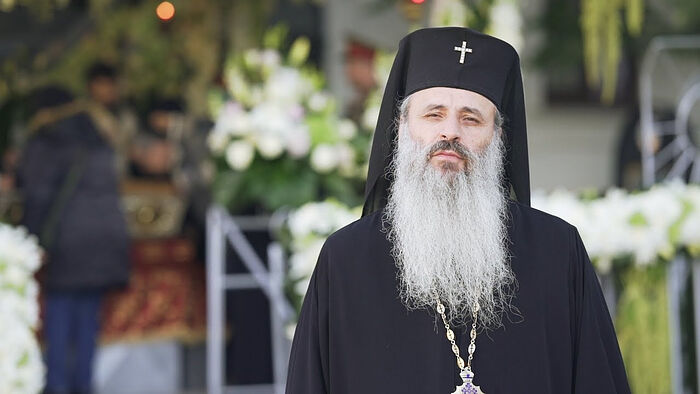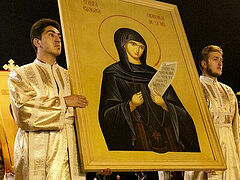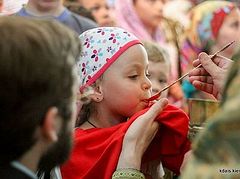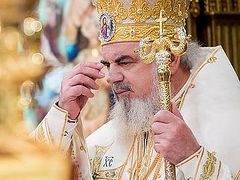Iași, Romania, October 9, 2020
On Tuesday, the Archdiocese of Iași of the Romanian Orthodox Church issued a press release concerning the restrictions surrounding the feast of St. Parascheva this year on October 14.
Her feast is traditionally one of the largest religious events in Romania, drawing tens of thousands of Orthodox faithful annually to the Cathedral in Iași that has been home to her relics since 1641. This year, due to the coronavirus pandemic, civil authorities ruled that no one is allowed to travel to Iași for the feast and that her relics would not be brought out for the veneration of the faithful.
In its statement, the Archdiocese lamented that people are allowed to enter the city for any reason except the pilgrimage. And in his own statement published by the Romanian Church’s Basilica News Agency yesterday, His Eminence Metropolitan Teofan of Moldavia and Bukovina warns about violations of the freedom of religion in regards to the authorities’ restrictions.
“Moldova is currently living one of the saddest periods in its history,” His Eminence writes, emphasizing that the ban on attending the beloved pilgrimage only adds to the “pain caused by the fact that many our people are affected by this new epidemic.”
“The ban is respected to such an extent that there have been more representatives of the police around the Metropolis than worshipers. It is the effect of a discriminatory measure, which violates numerous legal provisions and international principles that protect the freedom of religious expression,” says the Metropolitan.
His Eminence also notes how difficult it is to understand why people can go to Iași for work, for shopping, to go to the hospital, to visit children, and so on, but they cannot venerate St. Parascheva, among the most beloved saints in all of Romania, while they are there.
Moldavia has endured invasions, wars, plagues, and totalitarian regimes, Met. Teofan notes, but nothing like this has ever happened before.
“The holy relics of St. Parascheva have always been a source of relief, healing and strengthening, and people have been allowed to approach them. Today, they have come to be considered a source of contamination,” His Eminence laments.
“Believers have endured severe restrictions on the freedom to manifest religious beliefs in the name of fighting this plague. However, everything has a limit that, if passed, is not good for anyone,” the Metropolitan emphasizes.
He then humbly asks all those who would have participated in the St. Parascheva pilgrimage “to forgive [him] for not being able to facilitate their access to worship.”
“I ask everyone to turn this pain into a time of repentance, prayer and good deeds,” the archpastor urges.
He also calls on priests to serve the Liturgy daily and for churches and monasteries to serve the Paraklesis and Akathist to St. Parascheva. The Psalms should also be a source of consolation for the faithful during this time, especially at night, says Met. Teofan.
He also calls on the faithful to fast for a few days before and after her feast—“Everything for God to look down on us, St. Parascheva to forgive us, medical staff to be properly encouraged and appreciated, people to do what is necessary to protect their health and the health of their fellow men, and the authorities to have the wisdom of decisions to take into account the scale of the epidemic, but also the fact that there are many people in this country who have faith in God and in the healing power of the prayers of the saints.”




